Volvo Trucks: Working towards a sustainable future
Volvo Trucks: Working towards a sustainable future
Volvo Trucks’ stand at the 2024 IAA Transportation was testament to the company’s commitment to a sustainable, safer future, writes STEFAN PERTZ, editor in chief of Asian Trucker.
With advanced trucks like the new Volvo FH Aero range and the US Volvo VNL, Volvo Trucks showcased its determination to move towards zero emissions and zero accidents. The display also highlighted new technologies and developments in hydrogen and electric vehicles, confirming Volvo’s leading role in transforming the global transportation industry.
“Our line-up at this year’s IAA showed the global strength of the Volvo Group,” said Roger Alm, president of Volvo Trucks. “It demonstrated our commitment to reaching zero emissions and zero accidents – both are equally important for the success of our customers.” This encapsulated the key theme of Volvo’s presence at IAA: the provision of sustainable and safe solutions for modern transportation.
New trucks
Designed for the European, Asian, and African markets, the Volvo FH Aero range includes electric and biofuel-powered variants, reflecting the company’s focus on alternative energy sources. Volvo also introduced the all-new Volvo VNL – a model that features groundbreaking autonomous technologies – to the European market. “I’m excited to see the reactions from customers and media on our new truck ranges and future technologies,” Alm enthused.
Another highlight was the Volvo FM Low Entry, a battery-electric truck specifically designed for city environments, prioritising both sustainability and safety with enhanced driver visibility. The Volvo FH16 Aero, featuring the new D17 17-litre engine, was also on display. This powerful machine is optimised for tough tasks and certified for use with alternative fuels like hydrotreated vegetable oil (HVO) and biodiesel B100.
Volvo Trucks’ upcoming e-axle technology, another key innovation at IAA, promises to extend the range of its next-generation battery-electric and fuel cell electric trucks. This e-axle will allow for the longer electric range and improved driveability essential for Volvo’s vision of the future.
Future of powertrains: hydrogen and electric
Volvo’s ambition to reduce carbon emissions is clear through its product offerings and future plans. While the company has already made strides in electric vehicles – with five years of experience in customer operations across 47 countries – hydrogen is the next big focus. Hydrogen-based fuel cells and combustion engines are in development, aiming to future-proof Volvo’s truck range for all markets. These technologies are expected to reach customers by the end of the decade.
Jan Hjelmgren, head of product management and quality at Volvo Trucks, pointed out that the company’s strategy is to tailor its products to meet regional needs, ensuring that they comply with local regulations while contributing to global sustainability goals. “The demand for transport solutions is derived from global companies, and we simultaneously roll out our solutions across markets,” added Alm.
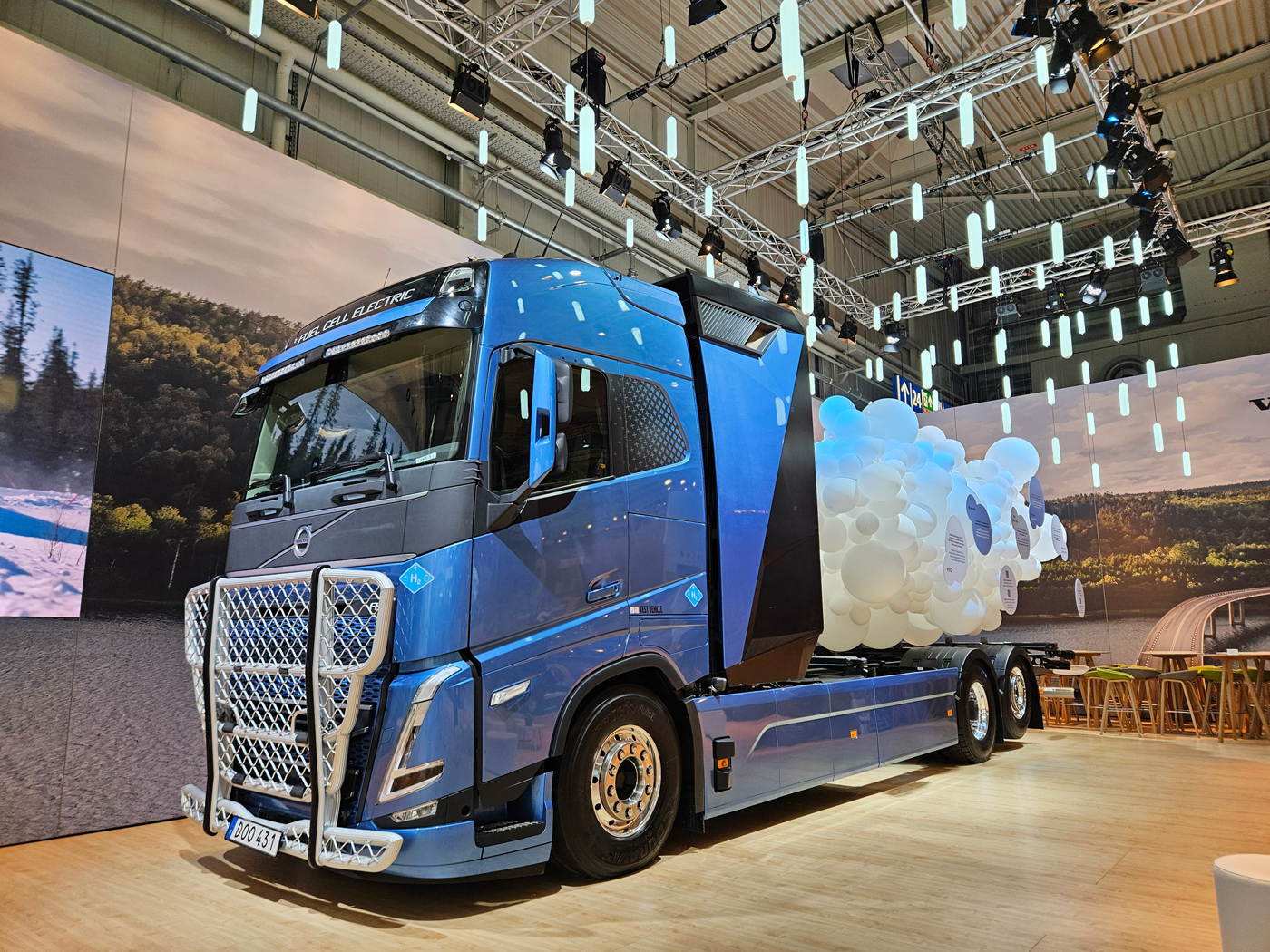
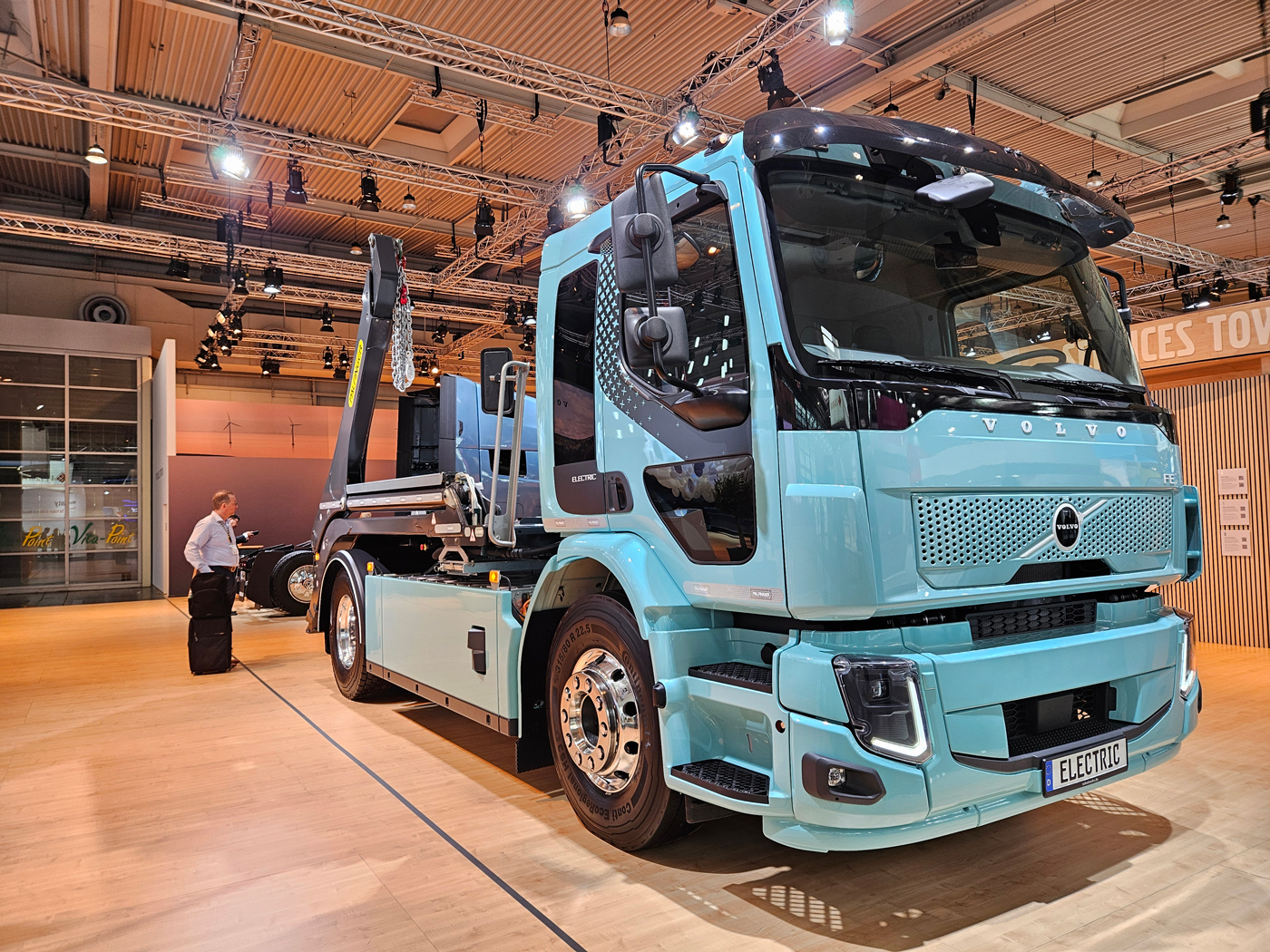
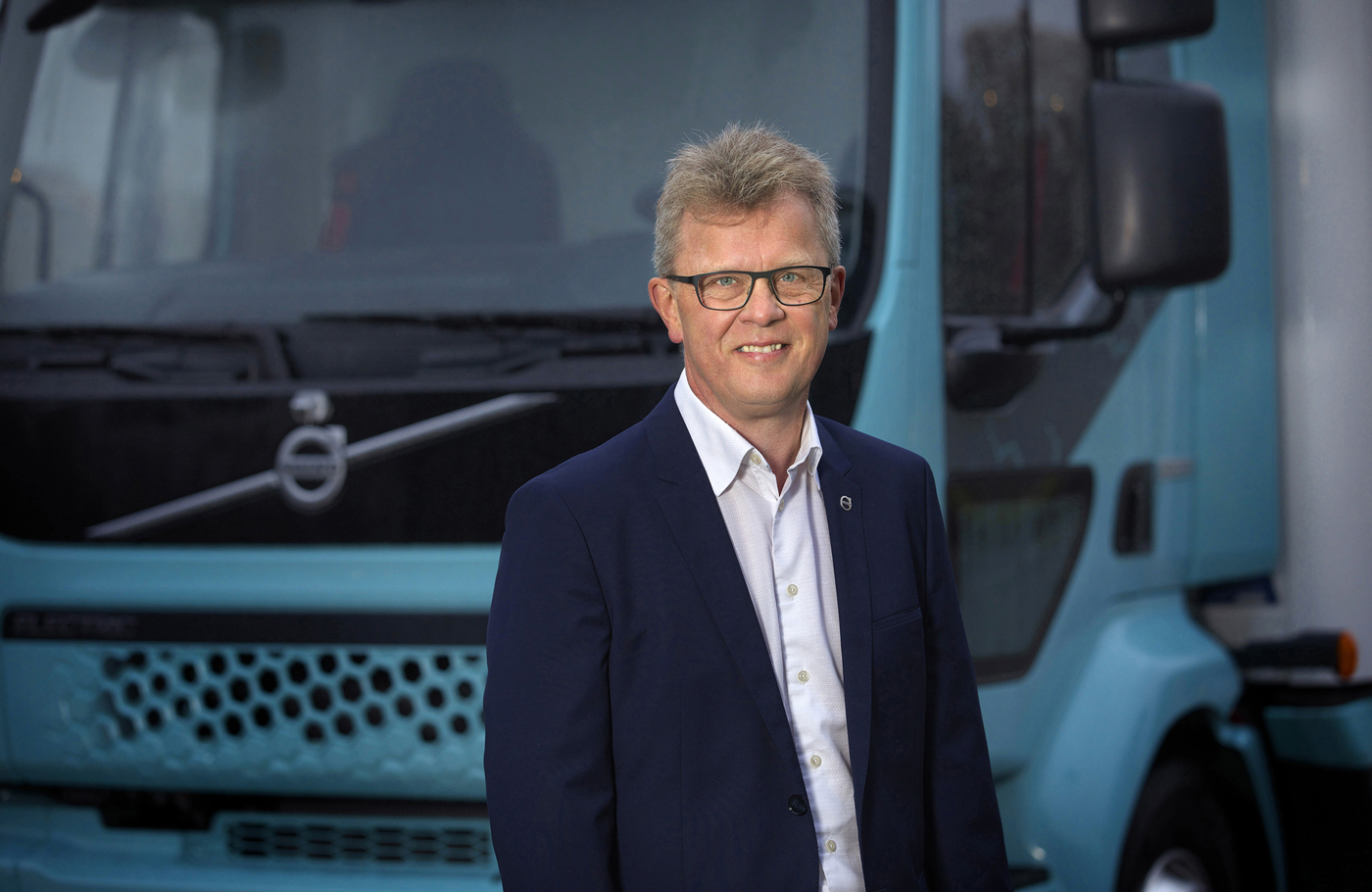
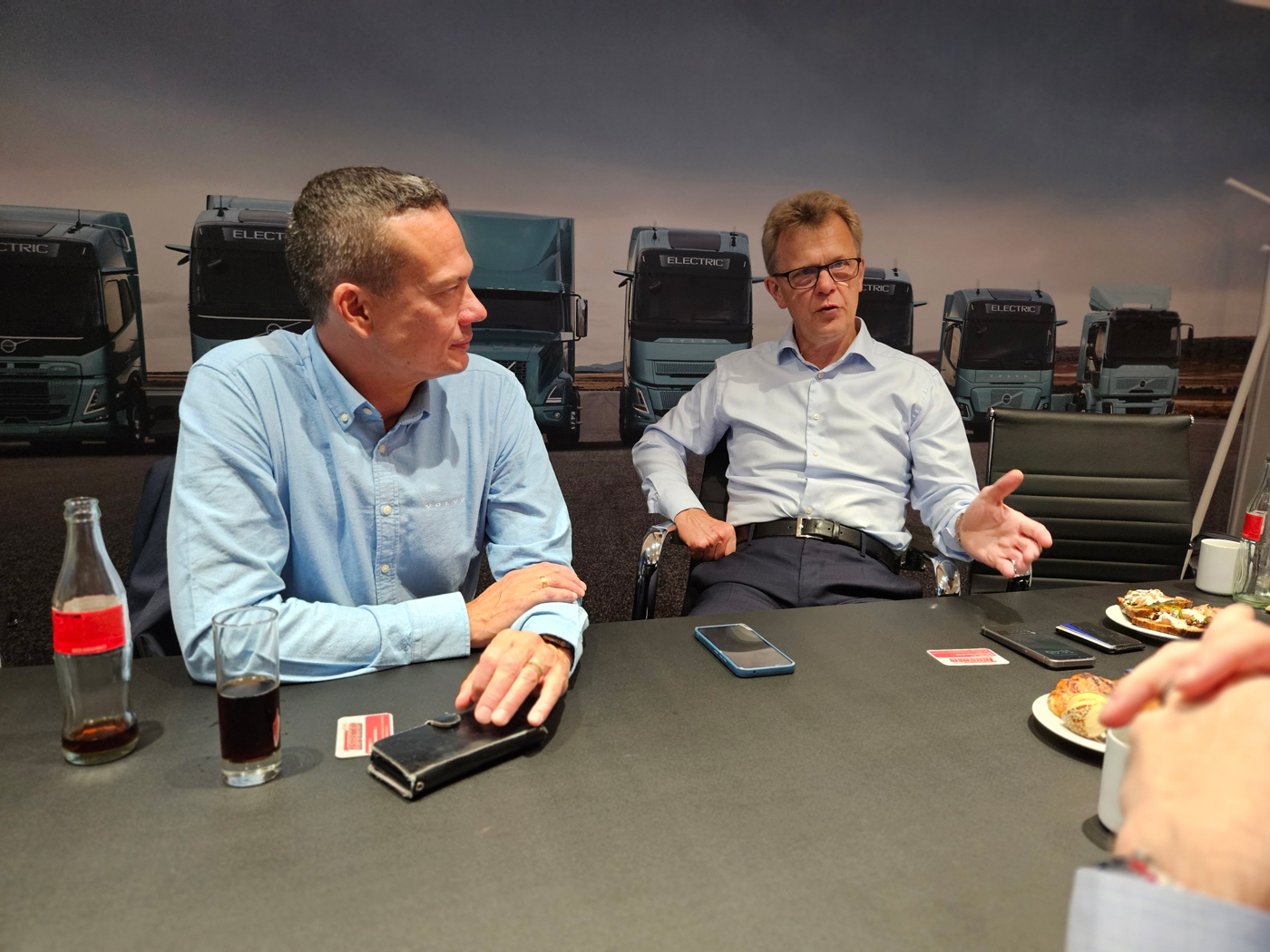
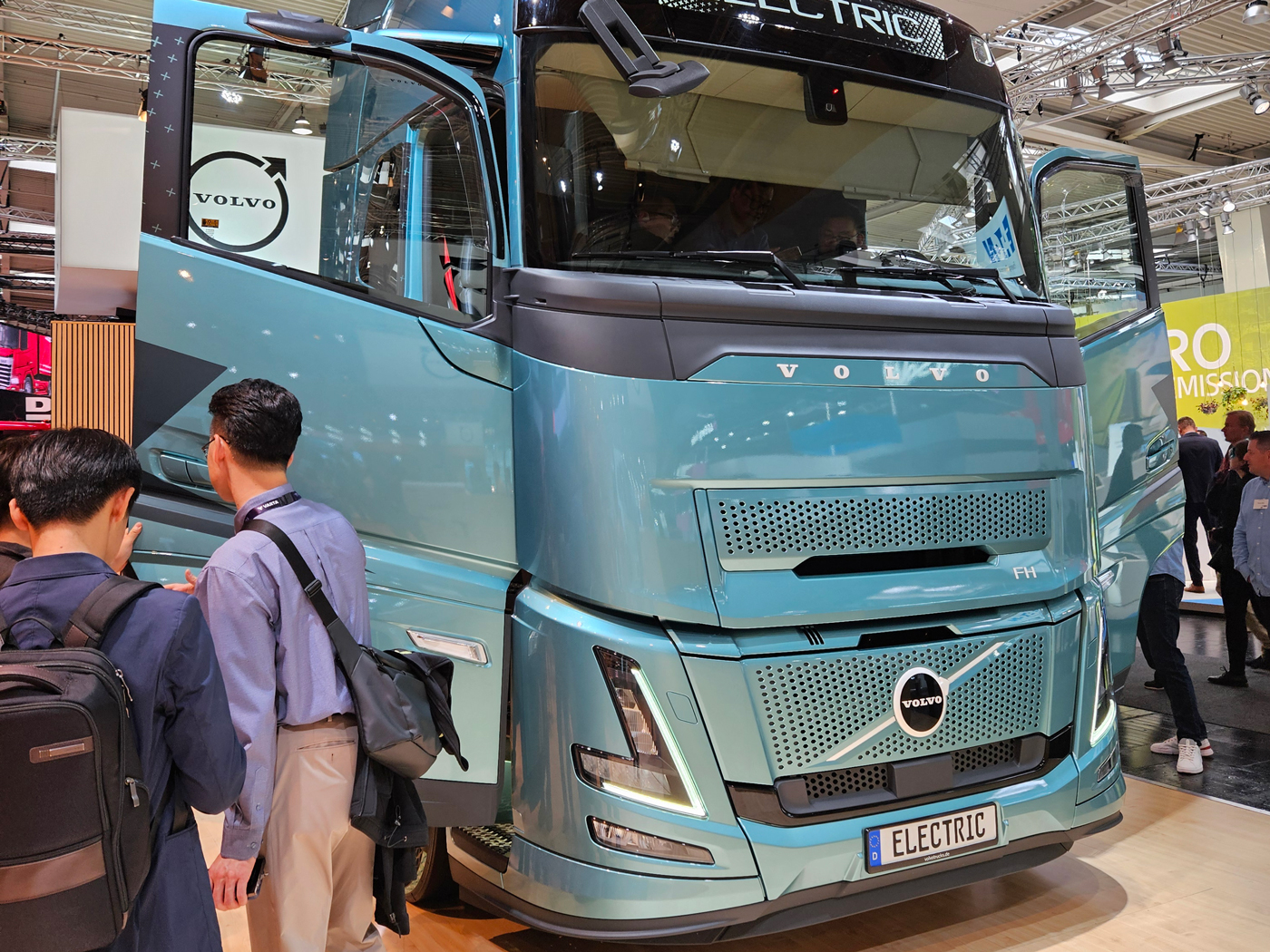
Infrastructure needed
For the further development of electric trucks, however, both Alm and Hjelmgren stressed the need for better infrastructure. “For now, the bottleneck is the charging infrastructure,” Alm explained. While many customers are enthusiastic about electric trucks, the availability of charging stations remains a challenge for wider adoption.
The upcoming launch of Volvo’s long-range electric truck, capable of driving up to 600km on a single charge, represents a significant breakthrough in the electrification of heavy-duty transport. “Our new electric flagship will enable zero-exhaust emission transport for longer distances,” Alm said, confirming that the truck will be available for sale in the second half of 2025. This milestone will allow companies with high annual mileage to reduce their carbon footprint, further supporting Volvo’s goal of net-zero emissions by 2040.
Safety at the core
Safety has always been central to Volvo’s ethos, and this was strongly reflected at the IAA. “We are synonymous with safety when it comes to motor vehicles,” stressed Hjelmgren. With new technological advancements, the company is aiming to build on this long-standing reputation to achieve even greater levels of safety, integrating more features to prevent injuries and fatalities.
“When we are at zero fatalities and accidents, then we have reached our goal,” said Hjelmgren, acknowledging the complexity of this mission due to the unpredictability of road users. However, Volvo is continually advancing in this area, adding features to its trucks like Camera Monitoring Systems (CMS) and night vision, which allow drivers to monitor their surroundings even in low visibility conditions.
Per-Erik Lindström, senior vice president of Volvo Trucks International, pointed out that safety is not just about the truck itself but also extends to suppliers, contractors, and partners. “Safety is our core value, and we carry this responsibility throughout the supply chain,” he said.
Lindström, responsible for 75 countries across Africa, the Middle East, Asia, and Oceania, offered insights into Volvo’s global strategy. “What we offer is a global product; solutions that fit the needs of customers in all our markets,” he said, explaining how Volvo customises its trucks to suit the specific requirements of different regions.
While advanced technologies are more prevalent in Northern Europe, markets like Africa still rely on simpler solutions. “There is no point pushing for a hydrogen-powered truck if the hydrogen is not produced in a sustainable manner,” Lindström emphasised, underscoring the importance of context when introducing new technologies. For some markets, diesel engines might still be the most viable option until infrastructure catches up.
People-centric business
It was clear at the IAA that Volvo’s business is not just about machines, but also about people. “It is a very emotional business where we need to earn and build trust,” Alm said, adding that this trust is built through reliable, high-performing products. If a truck spends too much time in the workshop, customers lose confidence in the brand, which is why Volvo focuses heavily on quality and uptime.
Reflecting on his 35 years with Volvo, Alm shared, “The two best things that happened to me were getting married to my wife and starting my career at Volvo.”
Now he and his team are tasked with delivering a sustainable, safer future – not only for his wife and family, but for transport operators and, indeed, the planet. It’s a big ask, but, judging by the products on display at the IAA, Volvo is up to the job.
- This is an edited version of an article that originally appeared in Asian Trucker.
Published by
Focus on Transport
focusmagsa




